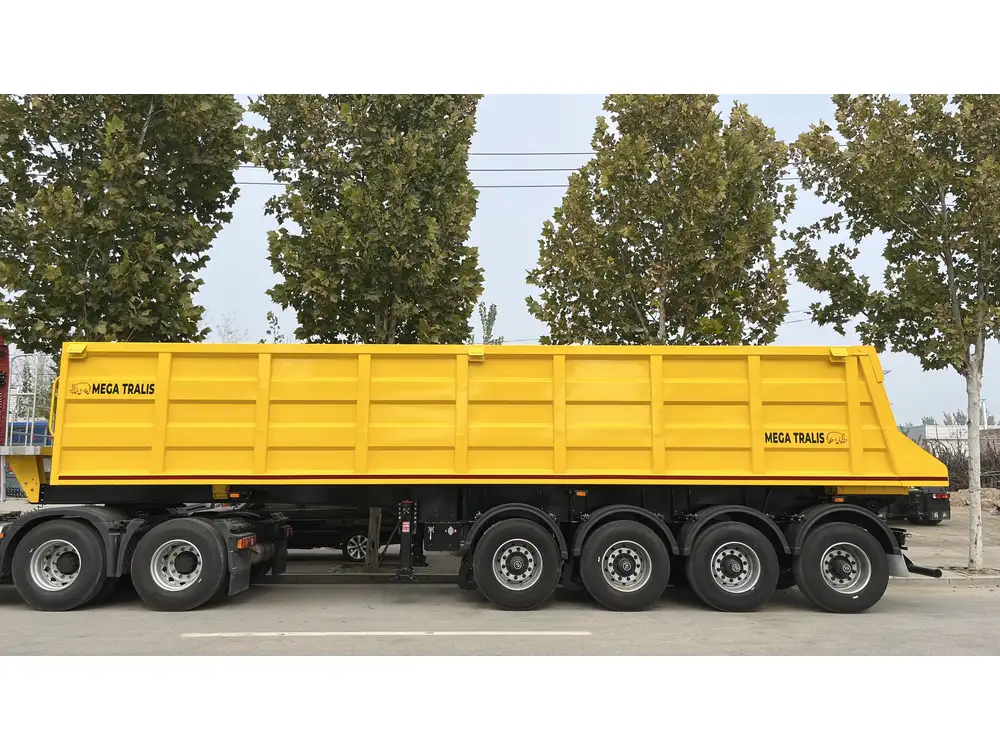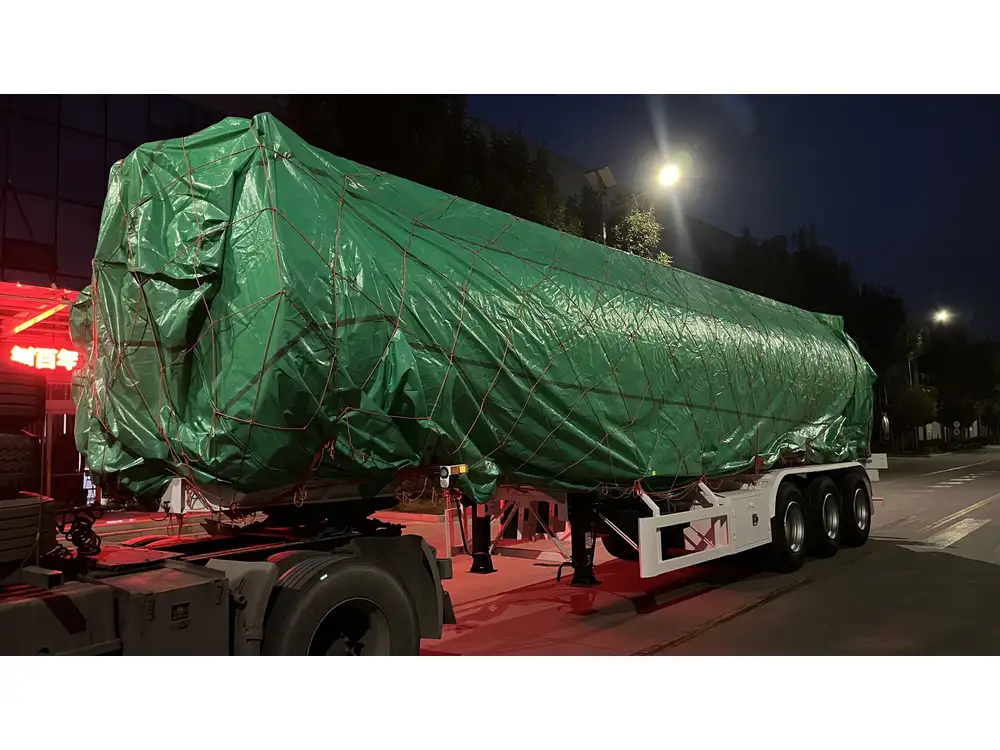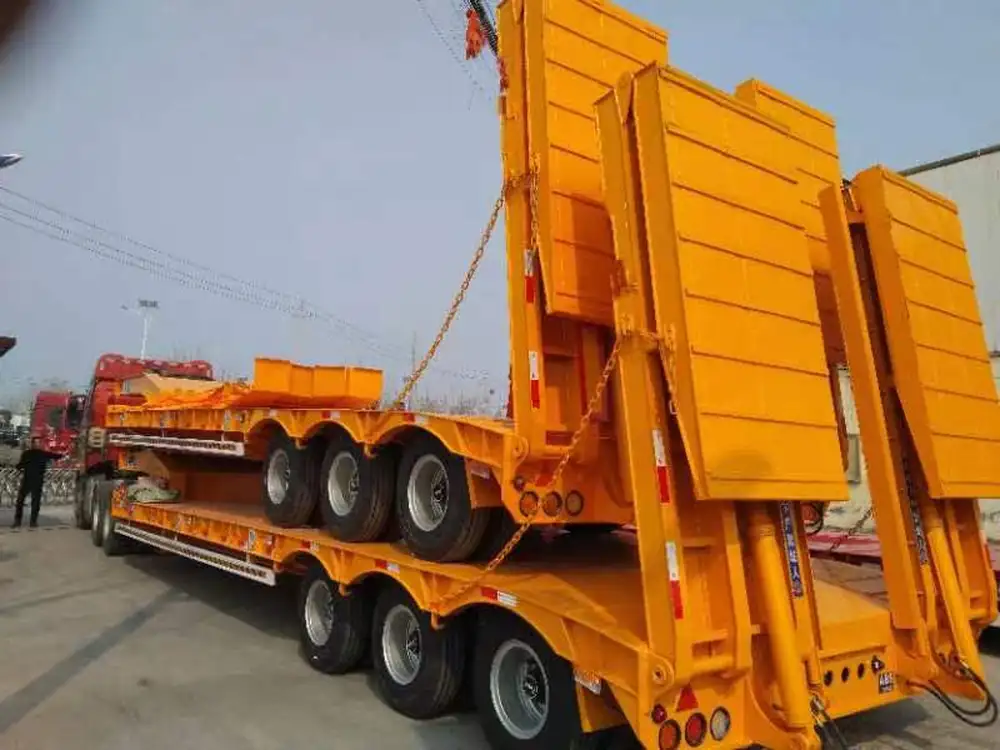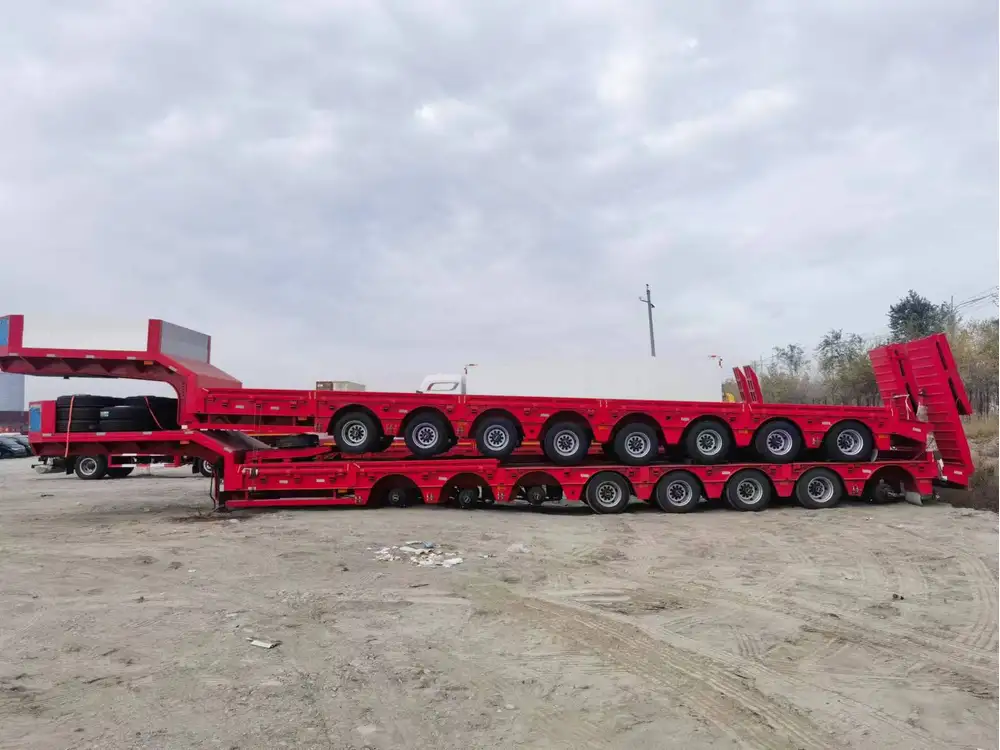Disposing of waste—especially when it accumulates in large quantities via a semi-trailer—can often feel overwhelming. However, with proper knowledge, the process can be both painless and efficient. Understanding where to dump a trailer of trash is essential to maintaining environmental responsibility, complying with regulations, and ensuring community standards are met. This guide will serve as a holistic resource for individuals and businesses alike, providing valuable insights into responsible waste disposal practices.
Understanding the Importance of Proper Waste Disposal
Improper disposal not only leads to environmental degradation but can also attract legal penalties. Waste produces odors, attracts pests, and can contaminate soil or watersheds. Thus, adhering to disposal regulations is of paramount importance, particularly when dealing with a semi-trailer full of waste.
Types of Waste You Might Encounter
- Household Waste: General refuse that households produce, including food scraps, broken furniture, and miscellaneous items.
- Construction Debris: Material left over from construction or renovation projects, often bulky and heavy.
- Commercial Waste: Waste generated by businesses, which can include anything from packaging materials to spoiled goods.
- Hazardous Waste: Items like paints, chemicals, and batteries that require special handling and disposal methods.
Understanding the type of waste being dumped helps in identifying suitable disposal locations.

General Guidelines for Waste Disposal
Step-by-Step Disposal Process
- Assess the Waste: Identify what kinds of items are in the trailer.
- Check Local Regulations: Waste disposal laws vary widely by location. It’s crucial to consult local bylaws for specific guidance on what is acceptable.
- Select a Suitable Disposal Method:
- Landfills: General waste can often be disposed of at municipal or private landfills.
- Recycling Centers: For recyclable materials, locate nearby organizations that accept specific substances.
- Hazardous Waste Facilities: For items like chemicals, ensure disposal through a certified facility.
- Transportation: Plan how the waste will be transported from the trailer to the disposal site. Ensure safety and compliance with transportation regulations.
- Document Disposal: Keep records of where waste was dumped as a safeguard against any potential legal issues.
Suitable Locations for Dumping a Trailer of Trash
| Type of Waste | Disposal Method | Location | Contact Information |
|---|---|---|---|
| Household Waste | Landfill | Local Landfill | (XXX) XXX-XXXX |
| Construction Debris | Construction Waste Facility | Regional Construction Site Disposal Yard | (YYY) YYY-YYYY |
| Commercial Waste | Private Waste Management Service | Local Waste Management Company | (ZZZ) ZZZ-ZZZZ |
| Hazardous Waste | Hazardous Waste Management Facility | Environmental Protection Agency (EPA) | (AAA) AAA-AAAA |

Landfills: Where Bulk Waste Goes
In cases where waste isn’t recyclable or compostable, landfills are often the go-to solution. Understanding the general operation of landfills is crucial:
- Entrance Procedures: Most landfills require documentation or pre-registration. It’s recommended to contact beforehand.
- Weight Limits: Each landfill has weight restrictions, so be sure to check the weight of your trailer before arrival.
- Fees: There is usually a fee associated with dumping waste. This can vary based on the type and volume of waste.
Recycling Centers: Turning Trash into Treasure
Recycling not only reduces landfill waste but also conserves natural resources. Many communities and municipalities have adopted recycling initiatives. Here’s how to find the right center:
- Check their accepted materials: Not all centers accept the same items; verify what is permissible.
- Specialization: Some centers may focus on electronics, while others handle plastics or metals.
- Community Programs: Local governments often host recycling events, especially for large bulk items.
Construction Waste Facilities: Handling Specialized Waste
Construction debris requires adept handling due to its size and potential hazardous materials.
Local Contractors: Frequently, contractors or builders have established connections with disposal facilities, which makes it vital to consult with them.
Resource Recovery Facilities: These facilities aggregate construction waste and separate it for recycling purposes. This process not only ensures proper waste handling but also repurposes materials such as concrete and wood.

Hazardous Waste Facilities: The Safe Approach
Disposing of hazardous waste isn’t just about regulation compliance; it is about safeguarding communities.
- Identification: Recognize hazardous materials in your trailer. Items such as paints, solvents, pesticides, and batteries fall under this category.
- Certified Facilities: Look for facilities certified to handle hazardous waste. These often provide proper containment and treatment to neutralize risks.
- Community Events: Many municipalities conduct periodic hazardous waste collection events, where residents can drop off these materials without concerns.
Alternative Disposal Methods
In addition to traditional disposal methods, several alternatives exist for handling trash from a trailer:
Donation and Repurposing
If your trailer contains reusable items, donating them can be an excellent option. Numerous organizations accept furniture, appliances, and clothing donations:
- Charities: Many local charities will pick up largescale donations.
- Community Boards: Online platforms like Craigslist or Facebook Marketplace can facilitate giveaway events.

Composting
For organic waste, consider composting before disposal. This not only reduces the amount sent to landfills but transforms waste into nutrient-rich soil.
Junk Removal Services
For those who want a hassle-free approach, hiring a junk removal service is a popular option. These companies handle everything—from sorting waste to transportation—allowing you to focus on your core activities without concern.
Potential Challenges in Waste Disposal
When pursuing waste disposal, several challenges may arise. Understanding these beforehand can help mitigate issues down the line.

Regulatory Compliance
Many locales have stringent waste disposal regulations, from types of allowable waste to how waste should be packaged. Not adhering to these can lead to penalties.
Physical Limitations
Transporting a trailer full of waste can be physically demanding. Consider using professional services if you face limitations due to time or capability.
Environmental Considerations
Improper disposal can lead to environmental harm. Being conscious and educated about waste disposal practices can mitigate these risks.

Summary
Knowing where to dump a trailer full of trash involves multiple steps, including understanding local regulations, assessing waste types, and selecting suitable disposal methods. Whether directing waste to a landfill, recycling center, or special facility for hazardous items, the emphasis should always be on environmental responsibility.
Key Takeaways
- Research Local Regulations: Always verify applicable waste disposal regulations in your locality.
- Choose Appropriately: Assess if your waste can be recycled, donated, or needs special hazardous handling.
- Consider Alternative Methods: Explore options like hiring junk removal services or community donation events.
- Sustainability Matters: By making responsible choices, you contribute to a cleaner environment and promote sustainable practices in waste management.
By applying this comprehensive approach, individuals and businesses alike can navigate the complexities of waste disposal, ensuring that they contribute positively to the environment and comply with local regulations. This leads to a cleaner community while minimizing personal liabilities associated with improper disposal methods.



